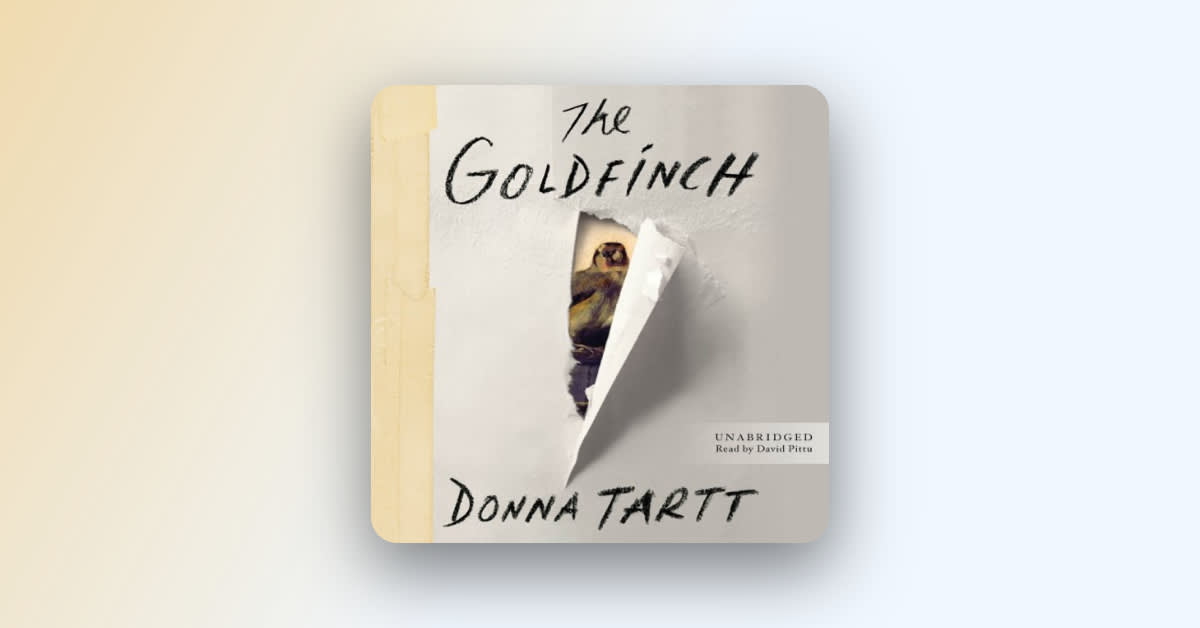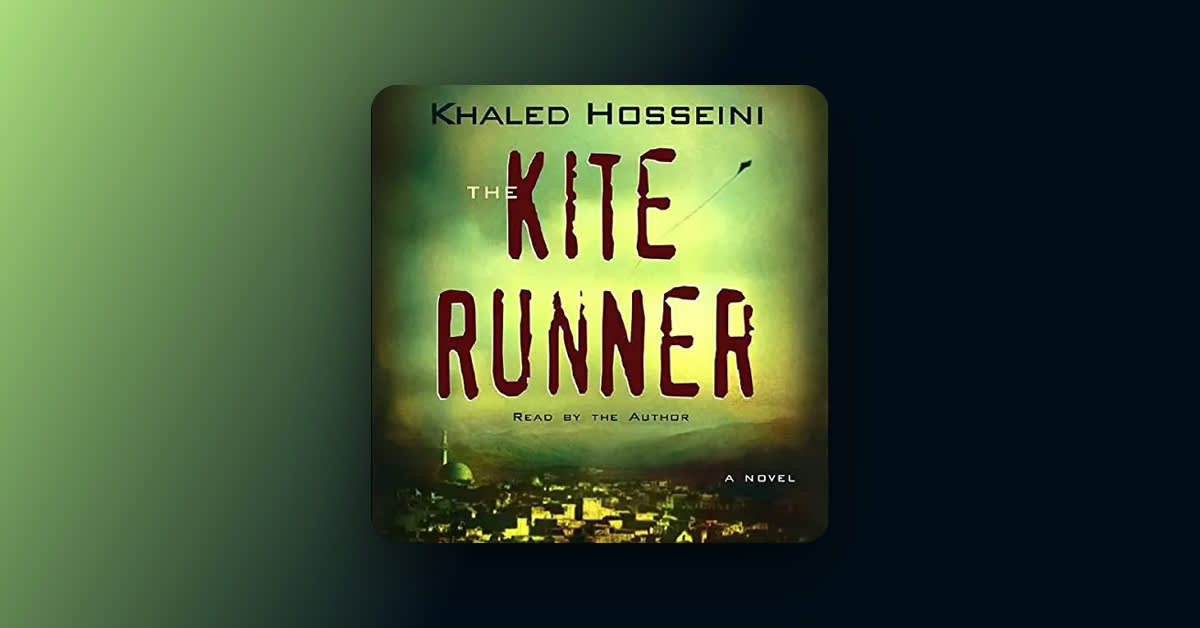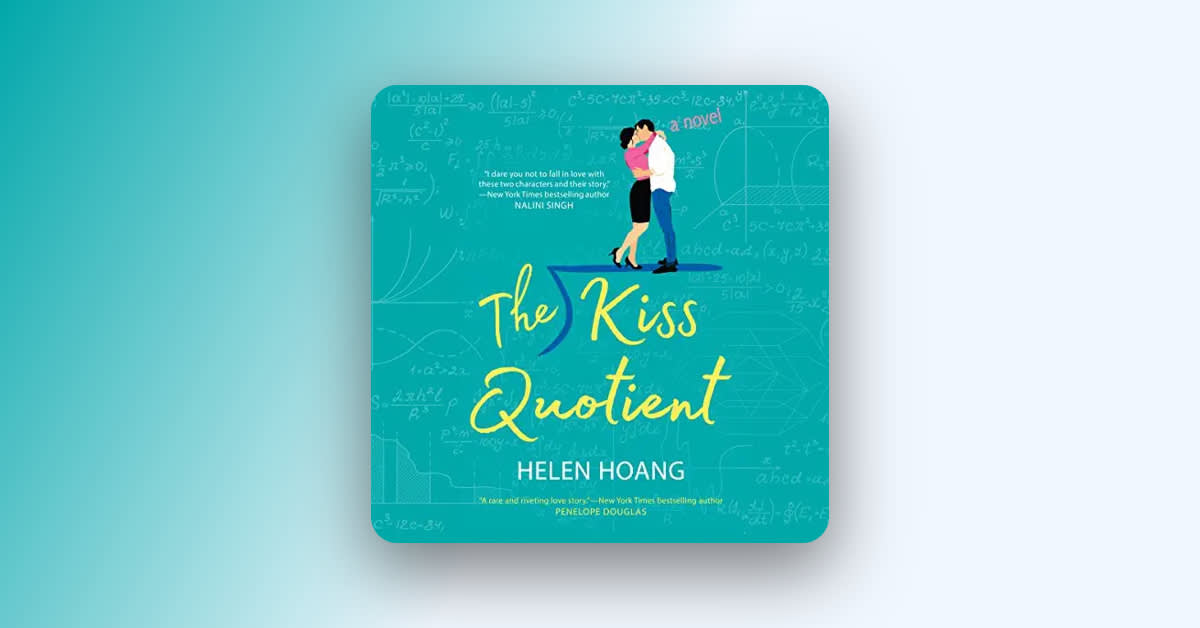Why it's essential
Narrator David Pittu creates a beautiful, familiar kinship with each of Donna Tartt's characters, which resonates with the listener long after the final chapter.
What is The Goldfinch about?
A coming-of-age tale that spans decades and countries, The Goldfinch follows Theo Decker, who, at age 13, suddenly loses his mother and becomes an unwitting art thief in the same explosive, tragic moment—and the profound effects that event has on the rest of his life.
Editor's review
An unabashed nerd, Sam Danis can’t get enough of sci-fi, fantasy, and horror—but she likes to dabble in thrillers and memoirs as well.
The Goldfinch was one of the first novels I listened to when I started working at Audible nearly a decade ago. I joined the team in September, and with this title releasing in a month’s time, I remember what a very big deal it was that a new Donna Tartt book was forthcoming (she only publishes about once a decade, after all). The plot is gripping: During a bombing at New York’s Metropolitan Museum of Art, two events alter the course of 13-year-old Theo Decker’s life. His mother—the most prominent figure in his life—is killed, and he grabs the painting they were there to see (the titular Goldfinch by Carel Fabritius), thereby becoming an accidental art thief. What follows is a coming-of-age story of epic proportions—about fate, loss, consequences, and the intangibility of home and family. It is at turns sentimental, suspenseful, melancholy, and hopeful.
I watched as the glowing reviews poured in, with no real intention to listen myself. A 32-hour audiobook seemed incredibly daunting when I was new to the world of audio entertainment—primarily, a podcast and short audiobook listener. And this, after all, was literary fiction.
Why did I ultimately decide to pick it up? I can’t recall exactly, but I imagine it had something to do with peer pressure. My fellow editors and I influence each other in the best of ways—nobody wants to be the last one to hear something truly amazing—and I think it was our fiction editor, Tricia, who first sung the praises of this one. So, I buckled in (read: put on my headphones) and prepared for whatever was to come.
Donna Tartt is unmatched in her skill as a writer—I feel certain if I had read this novel, I also would have enjoyed it. (And I eagerly and patiently await her next, whenever it may come, trusting that it is currently marinating to perfection.) But I want to focus on the performance here. Why listen? Why commit to such a long work?
Have you ever heard a narration that made you think, "This is it—if I only hear this voice for the rest of my listening life, I will be happy"? I don’t mean to be dramatic, but that’s what David Pittu’s performance did for me. Some narrators are vocal chameleons, making you double check the cast list to confirm it is indeed one voice, not a multicast. Pittu isn’t quite like that—it’s always him, with his distinct gravelly tone. And it is perhaps this quality that so effortlessly ushers us through a coming-of-age tale of such epic proportions. Whether portraying main character, Theo, as young or old, the mischievous Ukranian Boris, or the grating stepmother Xandra, it works, but it is very clearly Pittu. He is youthful and exuberant in one scene, weary and disenchanted in the next. He evokes the panic, dread, wonder, surrealism, and triumph that Tartt so deftly explores throughout this work. In the written word, Tartt’s novel is a masterpiece. In audio, thanks to Pittu, it somehow transcends that label.
This listen kept me company through the holiday season of 2013. I would shut out the noise and bustle of New York City by popping in my earbuds—and, ironically, escape to the noise and bustle of the New York City that Tartt wrote. If only I could bottle that first-listen experience and turn back time to experience it all over again. I’ve had my turn with this gorgeous work, though—so I’ll be content to encourage others to discover it for themselves.
Did you know?
The Goldfinch is a real painting by Carel Fabritius, currently in Mauritshuis in The Hague. It may have also survived an explosion called the Delft Thunderclap, which killed the artist, along with more than 100 residents of Delft, and destroyed much of his work.
What listeners said
"Best narration I have heard. Magnificent story. The 30-plus hours that it takes to listen to this amazing tale rush by in a blink. Theo grabbed me from the very first paragraphs and I spent days with him. These days were filled with sorrow, laughter, horror, incredulity and accompanied by very colorful characters." —Felicity, Audible listener
"If you like art, or literature, or humor, or edge-of-the-seat suspense, or even if you just want to see some of the wide selection of weirdos this world has to offer, I recommend The Goldfinch. It's big—but it's worth it." —Lesley, Audible listener
"A modern-day Great Expectations of sorts ... I am still thinking about the book, and it has been a week since I finished it. It is one of those rare books one considers a companion. It left me thinking about deeper questions of life." —Susan, Audible listener
Quotes from The Goldfinch
"I had the epiphany that laughter was light, and light was laughter, and that this was the secret of the universe."
"You can look at a picture for a week and never think of it again. You can also look at a picture for a second and think of it all your life."
"'When you feel homesick,' he said, 'just look up. Because the moon is the same wherever you go.'"
Adaptations
The Goldfinch was adapted into a 2019 film, directed by John Crowley and starring Oakes Fegley as 13-year-old Theo and Ansel Elgort as Theo as a young adult.
About the author
Donna Tartt is an American author who has achieved critical and public acclaim for her novels, which have been published in 40 languages. Her first novel, The Secret History, was published in 1992. In 2003, she received the WH Smith Literary Award for her second novel, The Little Friend, which was also nominated for the Orange Prize for Fiction. She won the Pulitzer Prize and the Andrew Carnegie Medal for Fiction in 2014 for her most recent novel, The Goldfinch.
About the performer
David Pittu is an award-winning actor and two-time Tony Award nominee, for his performance as Bertolt Brecht in LoveMusik (directed by Hal Prince) and for his multiple-role turn in the Mark Twain/David Ives comedy Is He Dead? (directed by Michael Blakemore). A prolific and acclaimed audiobook narrator, he received the Audie Award for Best Solo Male Performance for The Goldfinch.










